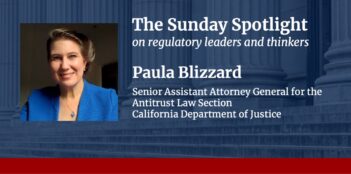
Party-line vote moves forward bill that would change FCC processes.
The House Energy and Commerce Committee recently voted to approve a bill tackling the controversial issue of reforming the FCC’s administrative process. The bill – the Federal Communications Commission Process Reform Act 2011 – was voted out of committee by a 31-16 vote along nearly party lines. The bill’s passage was preceded by a lively debate over the issues, involving two rounds of hearings with FCC Commissioners as well as the agency’s outside stakeholders. If enacted, the bill would mark the most radical transformation of the FCC administrative process since the agency’s establishment under the Communications Act of 1934.
According to Rep. Greg Walden, who sponsored the legislation and chairs the House Subcommittee on Communications and Technology, reform is warranted since the FCC “is the agency that hasn’t produced an annual satellite competition report or an annual video competition report in years, but claims that it doesn’t need to survey the industry before adopting new regulations for these providers.”
The substantial and complex FCC reform bill is the result of an intense legislative effort that began last May with testimony from a bi-partisan group of FCC commissioners. At the hearing, FCC Chairman Julius Genachowski, a Democrat, outlined the process reforms the agency had already undertaken on its own since he took office, including changes to the FCC’s rulemaking process as well as efforts to improve overall agency accountability and efficiency. While recognizing these internal reforms, Commissioner McDowell, a Republican, invited the subcommittee to consider changes to the FCC’s merger review process requiring the agency to apply a consumer harm standard alongside the current – broader – public interest standard. He also suggested that reform ideas from outside stakeholders “deserve serious consideration.”
In his opening statement at the May hearing, Rep.Walden acknowledged Chairman Genachowski’s voluntary reforms, but added his concern that “process and procedures of one chairman can change dramatically under another.” He claimed that “One FCC is open and transparent and the next is closed and dysfunctional.” Thus – from his standpoint – “[t]he time is ripe to codify best practices to ensure consistency from issue to issue, and from commission to commission.”
Subsequent to the May 2011 hearing, the Walden subcommittee circulated draft FCC reform legislation for discussion purposes. This draft legislation addressed changes to FCC rulemaking proceedings, the FCC’s role in merger reviews alongside the Federal antitrust agencies, and increased emphasis on adherence across the board to timelines and shot clocks to encourage agency action. The draft also proposed changing existing legislation to allow the commissioners to meet collectively in closed session, a practice currently prohibited under the Sunshine Act. Included in the proposed changes to FCC rulemaking proceedings were provisions requiring the agency to conduct a market survey before initiating a new rulemaking, to include in any future Notice of Proposed Rulemaking the text of the proposed rule, and to subject rulemaking proceedings with an estimated annual effect of $100 million or more to cost-benefit analysis.
This draft legislation was in turn the subject of another round of FCC reform hearings in June of last year. Witnesses at that hearing included several prominent FCC outside stakeholders, such as former Commissioner Kathleen Abernathy who lent her support to the draft legislation and advised the subcommittee that “[p]rocess and procedure – just as much as the substance itself – have a direct impact on industry participants and consumers.” In contrast Dr. Mark Cooper, on behalf of the Consumer Federation of America, found the discussion draft lacking in several respects, and testified that the proposed changes to FCC rulemaking and merger review – by shifting the applicable standard from the public interest to consumer harm – “would limit the ability of the FCC to protect consumers and promote the public interest.”
The fate of FCC reform remains unclear. Opponents of the bill – including House Commerce Committee ranking member Rep. Henry Waxman – view its provisions as overreaching. According to Rep. Waxman, the bill “would disable the FCC, not reform it.” The bill would likely be defeated by a Senate vote under Democratic control, and perhaps even become the subject of a Presidential veto, although the White House has yet to take an official position on the issue.




